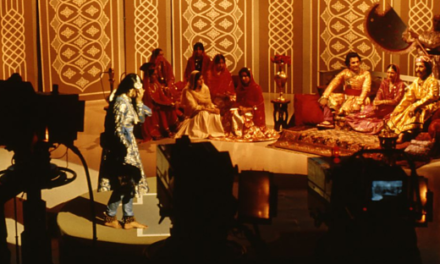Re: NOTICE OF CONSULTATION ON THE PROPOSED ACQUISITION BY NEWS CORPORATION OF UP TO 60.9% OF BRITISH SKY BROADCASTING GROUP PLC
8 JULY 2011
The result of the 100% acquisition of BSkyB by News Corporation would be the creation of a foreign-controlled monopoly news supplier in the area of subscription television. That this is a problem is acknowledged by the proposed arrangements in relation to Sky News. However, the arrangements currently envisaged do not adequately address the problem of such a dominant supplier in the area of news and public information.
The reason lies in the new patterns of news consumption, particularly amongst young voters. Traditional news channels such as Sky News are losing audiences in the under 30s demographic. Such voters are not turning their back on political information, however. They are finding it elsewhere.
American research on successive elections shows that young people in particular are increasingly deriving political information from entertainment and satirical sources. These sources are often found on channels such as Comedy Central rather than traditional news environments. Their value as news trusted information sources is, if anything, greater as a result, given that contemporary audiences are increasingly sceptical about factual material on TV (Ellis 2012). Even in the 2000 election, the Pew Centre found that 47% of people under 30 were informed ‘at least occasionally’ by late-night talk shows, many of which have a comedy or satirical bent (Pew 2000). Subsequent research (Delli Carpini & Williams 2004, Young & Tisinger 2006, Baum & Jamieson 2006, Smith 2009, Jones 2009 etc) confirms that this is a growing trend.
In particular, satirical news programmes like The Daily Show are becoming the prime source of political information at election time for many young Americans. This spreads beyond broadcast TV to the websites for such shows. The Pew Centre found that 27% of Americans under 30 interested in politics visited the websites for these shows, and 21% of 30-49 year olds (Smith 2009). The report also found that “Republicans, on the other hand, stay away from these sites in droves—just one in ten Republican online political users visit news satire websites, compared with 26% of Democrats and 21% of independents”. (Smith 2009 p.62). Such political partisanship may be an index of the increasingly bitter divisions in American society. Again, it may be the result of the decline in the US market of politically neutral and impartial TV news sources under the impact of partisan operations such as News International’s Fox News.
Further, Baum (2005) finds that appearances by candidates in entertainment format shows have a significant impact on the voting intentions of the less politically aware: “In particular, net of partisan preferences and a variety of other demographic and political factors, voters who rely primarily on entertainment oriented TV talk shows as a source of campaign information are more likely to find the opposition candidate ‘likeable’, as well as to cross party lines and vote for him, relative to their more politically aware counterparts who pay closer attention to traditional news outlets.”
Current US research is concentrated on elections. However, the impact of entertainment as a news source can be hypothesized as equally important in relation to ongoing political debates and opinion forming.
It is logical, then, to argue that the news and public information impact of the proposed acquisition will not be confined to the single Sky News operation. There are major news and public information implications across the entirety of the BSkyB offering.
Indeed, it can be argued that this may be one of the motives for the proposed acquisition. It may be a response by News International to the experience in the USA that political influence and public persuasion is moving away from traditional news and information platforms towards entertainment. Indeed, Jones (2009) argues that younger consumers may rate entertainment sources more highly than traditional news sources precisely because they appear to be ‘unmasking’ the forms and rhetoric of traditional information media, appealing to more ‘media-savvy’ consumers.
The proposed arrangements around Sky News, therefore, may address concerns in relation to older viewers, but they do little or nothing in relation to the developing political and public information habits of younger viewers. The proposed arrangements are therefore insufficient to remedy, mitigate or prevent the public interest concerns in relation to media plurality raised by this merger.
In a wider context, it would be relevant to ask whether the proposed merger brings any public benefit rather than to confine the question to that of public harm. If it is true, as Graham argues, that reliable information is a prerequisite for the operation of markets rather than a simple commodity to be traded within markets, then News International should be required to demonstrate the public benefit of the proposed merger. I know of no instance in which News International has justified the proposal in these terms.
Professor John Ellis
Professor of Media Arts, Royal Holloway University of London
John.ellis@rhul.ac.uk





